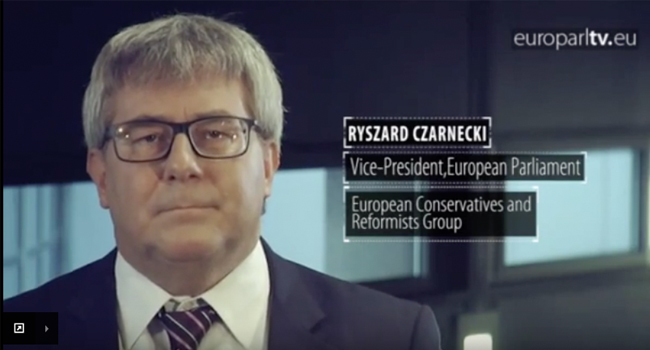As an elected European parliamentarian in one of NATO’s newest members, Poland—whose people are proud to be paying their agreed-upon 2% fair share for our common defense—and as Vice President of the European Parliament, I would like respectfully to offer my thoughts for the next president of the United States.
First, in Europe generally, and in Poland specifically, there is a widely perceived need for stronger U.S. leadership. With the demise of the Soviet Union over a quarter century ago, the absence of effective, visible, steady, and dependable U.S. leadership has left in its wake a void filled by new and dangerous non-state actors, enemies of freedom and Western Civilization.
The first Polish Pope, now Saint John Paul II, declared in his October 8, 1995, Homily at Camden Yard: “Surely it is important for America that the moral truths which make freedom possible should be passed on to each new generation. Every generation of Americans needs to know that freedom consists not in doing what we like, but in having the right to do what we ought.”
Freedom of speech, thought, assembly, religion, and other freedoms based on the time-honored values of Western Civilization have come under relentless attack from several sources in both Europe and the United States. As a result, there has emerged a distinct line of division within the Atlantic alliance, with aggressive secularism, moral relativism, and nihilism on the one side, and a beleaguered set of traditional values grounded in 2,000-old Christianity on the other.
On the one hand, one sees the growing forces of globalism that seem dead set on destabilizing organically developed nation-states. On the other hand, precious human lives are being sacrificed in the name of nation-building and spreading democracy, individual liberty, and the rule of law in regions of the world with little if any foundation for sustaining these core principles of Western Civilization, as recognized in the 1949 founding charter of NATO.
Second, we hope the new U.S. President will reject the current policy of “leading from behind” in a turbulent world, especially in the larger Middle East, Afghanistan, and the North African region. Instead, we hope the new President will embark on a path of steady, firm, and reliable leadership that, along with our allies and friends in the region, will stem the rise and spread of hostile actors bent on further destabilizing an already volatile region.
Owing to the ineffective, muddled, and floundering involvement by Washington in the Middle East over the past seven years, the Syrian civil war has spun out of control. Exacerbated by poor leadership in Washington, the Syrian civil war has unleashed a flood of mostly able-bodied male migrants into Europe, the likes of which have not been since World War II. If unchecked, the long-term consequences of this virtual invasion of Europe are serious and real: the radical transformation, if not disappearance, of Europe as we have known it for thousands of years.
Third, we hope that never again will a past, sitting, or future U.S. President criticize publicly, and repeatedly, the internal politics of a loyal allied government or its leader, as President Obama did at the recent NATO Summit in Warsaw (see “Remarks by President Obama and President Duda of Poland After Bilateral Meeting,” Warsaw, Poland, July 8, 2016), and as former President Bill Clinton did recently in connection with Poland and Hungary, “claiming the countries’ rejection of mass Muslim migration means they reject democracy and want ‘Putin-like dictatorships’.”
Having survived nearly half a century of brutal Soviet domination and humiliation, the last thing the newly free nations and their legitimately elected leaders (in the case of Poland and Hungary, by overwhelming or super majorities) need or deserve is to receive grossly inaccurate, outlandish public criticism, rebuke, and humiliation from the leaders of the free world.
Real leadership from the White House in Washington and effective diplomacy should provide ample means of, and opportunity for, maintaining a close relationship via the fruitful exchange of views and cultivating multi-faceted ties for the mutual benefit of each country and the NATO alliance at large.
We in Europe hope that, as the new leadership in Washington takes shape and charts its new foreign policy next January, our countries can look forward to a new and positive relationship with Washington based on mutual respect and noninterference in domestic affairs, as befits relations between and among loyal and reliable allies.
The Hon. Ryszard Czarnecki is Vice President of the European Parliament. The views expressed in this article are those of its author, and do not necessarily reflect the view of the European Parliament.
[Image via screengrab, YouTube/European Parliament channel.]
Subscribe to Chronicles: A Magazine of American Culture
12 hard-hitting issues / $44.99

Leave a Reply